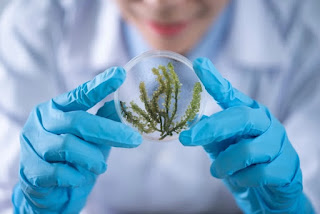Reproducibility Crisis Worsens in Scientific Research
It has long been known that there is a reproducibility crisis in many areas of science. Briefly put, someone will conduct research, submit a paper for peer review, get recognition — but the research cannot be replicated by other scientists.
Social sciences such as psychology are notorious for having research that is not reproduced, but other sciences have few such problems. Biology and the like have reproducibility problems as well. The public and other scientists want to be able to see results in the same way with the same data.
 |
| Scientist with seaweed, Pexels / Chokniti Khongchum |
Reproducibility, we are taught in school, is a hallmark of science. It’s one of the key traits that distinguishes knowledge from ignorance. For limited branches of science, reproducibility has a fairly good track record. In ballistics, for instance, one can predict the landing spot of a projectile to a high degree of accuracy. A second team, using identical equipment, samples and starting conditions, will likely get the same results. Many other experiments in physics and chemistry are usually reliable, with accuracies known to many significant figures.
The full article can be found at "Reproducibility Debunked as a Myth." One wonders if this research itself can be reproduced.